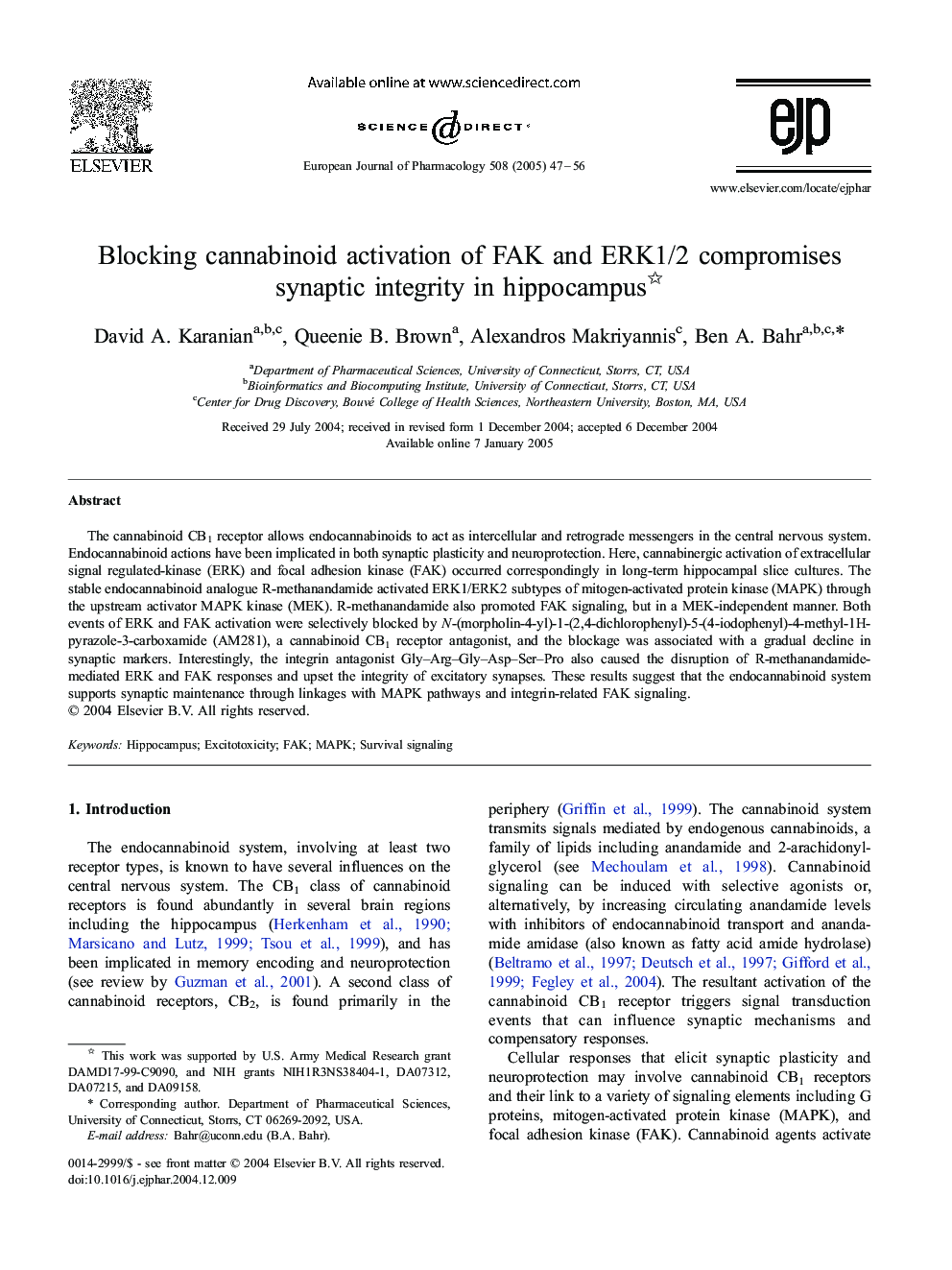| Article ID | Journal | Published Year | Pages | File Type |
|---|---|---|---|---|
| 9921519 | European Journal of Pharmacology | 2005 | 10 Pages |
Abstract
The cannabinoid CB1 receptor allows endocannabinoids to act as intercellular and retrograde messengers in the central nervous system. Endocannabinoid actions have been implicated in both synaptic plasticity and neuroprotection. Here, cannabinergic activation of extracellular signal regulated-kinase (ERK) and focal adhesion kinase (FAK) occurred correspondingly in long-term hippocampal slice cultures. The stable endocannabinoid analogue R-methanandamide activated ERK1/ERK2 subtypes of mitogen-activated protein kinase (MAPK) through the upstream activator MAPK kinase (MEK). R-methanandamide also promoted FAK signaling, but in a MEK-independent manner. Both events of ERK and FAK activation were selectively blocked by N-(morpholin-4-yl)-1-(2,4-dichlorophenyl)-5-(4-iodophenyl)-4-methyl-1H-pyrazole-3-carboxamide (AM281), a cannabinoid CB1 receptor antagonist, and the blockage was associated with a gradual decline in synaptic markers. Interestingly, the integrin antagonist Gly-Arg-Gly-Asp-Ser-Pro also caused the disruption of R-methanandamide-mediated ERK and FAK responses and upset the integrity of excitatory synapses. These results suggest that the endocannabinoid system supports synaptic maintenance through linkages with MAPK pathways and integrin-related FAK signaling.
Related Topics
Life Sciences
Neuroscience
Cellular and Molecular Neuroscience
Authors
David A. Karanian, Queenie B. Brown, Alexandros Makriyannis, Ben A. Bahr,
